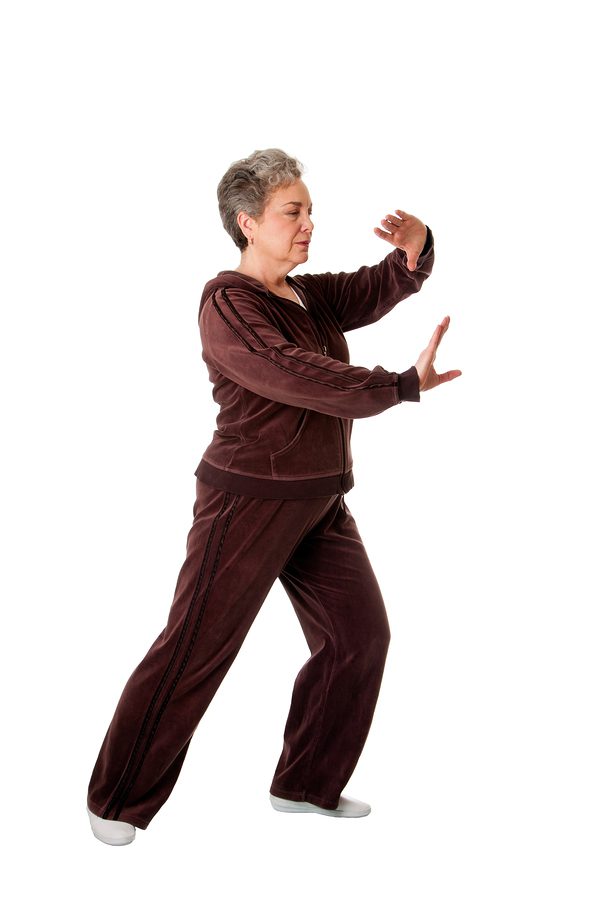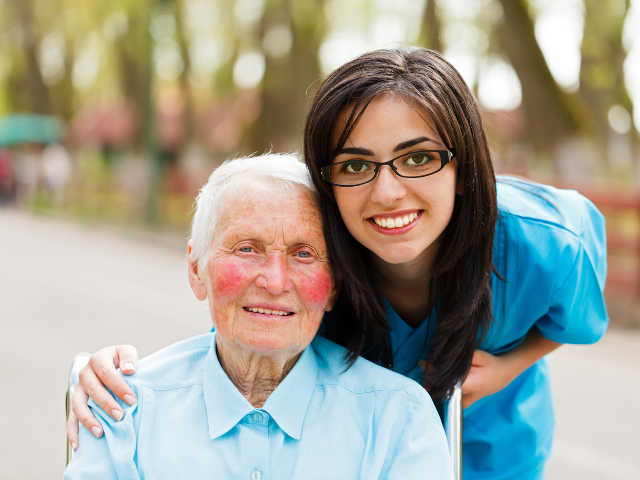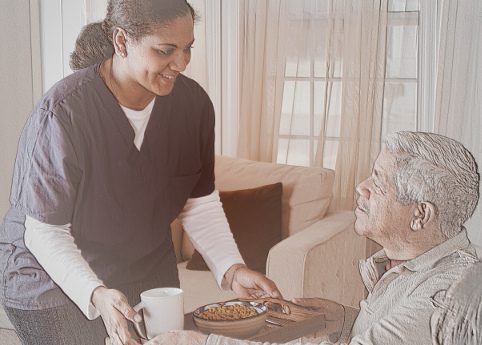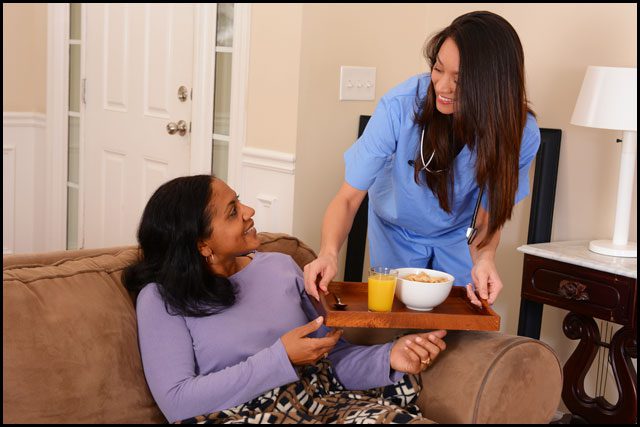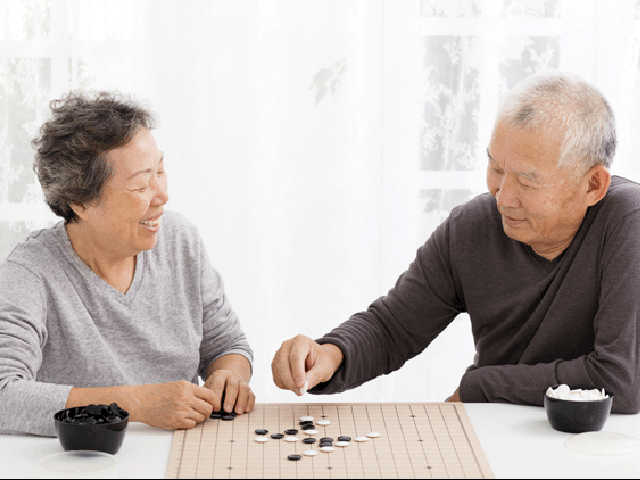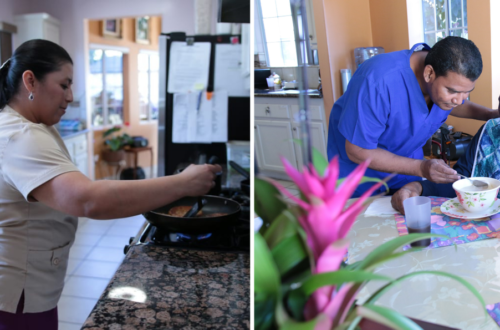-
How Do Meal Services Improve Assisted Home Care for Seniors?
As they say, “Food is life.” That’s true for any person, no matter what their age might be. Unfortunately, many senior citizens have difficulty eating regularly and getting the proper nutrition from their diet. This can be caused by many factors, including an inability to get to the store regularly, or trouble with preparing meals from the available ingredients. Meal services supplied as part of ongoing caregiving services provide the perfect solution to problems with senior nutrition. Let’s take a look at some of the benefits of meal services for seniors enjoying assisted home care: Meal Services Help You Get to the Store Many seniors have difficulty getting out of…
-
Top 5 Android Apps Caregivers Should Try!
Smartphones and tablets have become almost universal tech accessories in the last few years. Each new version of these devices is more useful than the model it replaced. More functionality hasn’t resulted in more complexity, however. They’re easier to use than ever, mostly because of the large selection of applications they run. Apps make these devices an incredibly useful tool for people working in senior home care services. Whether it’s managing prescriptions, looking up information, or summoning help in an emergency, there is an Android app for the task. We’ve assembled a list of five Android apps you can install on your smartphone or tablet to help with caregiving duties:…
-
6 Ideas To Show Your Caregiver That You Care, Too
Being a caregiver is a demanding job. A caregiver must remain on call to assist their patients at any time. It’s natural for people who work in home health care to focus more on their patients than themselves. It’s easy for them to forget to take care of themselves as well as they care for their clients. Some caregivers tend to have difficulty just accepting help from others. Even when people willingly offer help, assisted home care workers have a natural tendency to smile and politely decline. You can show a caregiver just how much you care about them by using a little planning and persistence. Here’s a list of…
-
Top 5 Exercises for Seniors With Arthritis
Many people who receive senior home care services suffer from arthritis. The National Center for Health Statistics estimates that 22.5 percent of all adults have arthritis. That adds up to a total of more than 50 million people in the US who have at least some arthritis pain. Exercise is the most effective method for reducing arthritic pain and improving the range of motion for seniors receiving home health care services. Moderation is important, and it’s also important to consult a physician before starting any exercise regimen. We’ve compiled a list of exercises for seniors with arthritis that have the least impact on joints and bones. Senior home care services…
-
Fun and Games With Memory Exercises
Family members who provide senior care often worry about the effects of memory loss on their loved ones. Everyone hopes to hold off the deterioration of the mind as long as possible, but the onset of memory loss can be subtle. If you fear that a family member may be heading down that path, you and other caregivers can do a few things to help. There are many strategies that have been shown to help with memory loss, and the good news is that most of them are not only effective, they’re lots of fun, too. Stimulating the Mind You can help stimulate brain function for seniors by making sure they…
-
Home Health Care and BMI: A New Perspective
Want to live longer? Head to the gym! That’s the conclusion of a new study conducted at the University of California at Los Angeles. The study is part of a growing body of evidence that is changing the way patients, especially seniors, should be evaluated for their overall health. Simply comparing a person’s weight to their height isn’t as effective a measurement of healthiness as previously thought. The study sheds light on approaches that home health care workers can use to improve the quality and the length of their client’s lives. Moving Away From BMI Nutritionists and doctors use Body Mass Index as a handy way to measure overall health.…
-
How to Make a Checklist for Your New Caregiving Service
Once a family has chosen a home care hospice service for in-home health care services or assisted care, there are many topics to discuss with the caregiving service. Every detail can be important to the quality of life for the elderly patient. We’ve compiled a handy checklist of things that should be discussed with a hospice caregiver before in-home care begins. It is a good idea to write down and give a copy of what you discussed to the caregiver, as well to as the home care service itself. That way, a family will know for sure that all their loved one’s needs will be taken care of by the…
-
How to Avoid Losing Sleep Over Elderly Sleep Issues
If you’re caring for an elderly loved one, it’s likely you’ve had to deal with sleep disorders at one time or another. Home health care professionals are trained to sort through the confusing information provided by seniors when they try to describe the reasons for sleeplessness. It’s also important for family caregivers to understand the many reasons why a senior’s sleep patterns might be disrupted. That way, they’ll know when sleep issues can be handled with lifestyle and diet changes, or if a trip to the doctor is needed. The Need for Sleep Changes With Age Sleep disorders are just one of the many changes that happen as the human…
-
Palliative, Not Terminal, Care
When most people hear the term “palliative care,” they immediately think of care for terminal patients. But that is not always the case. The basic thing about palliative care is that it is an approach that combines several disciplines in providing specialized medical care for seriously ill patients. The object of the care is to improve the quality of life for the patient. Taking Care of Serious Illness Palliative care is often applied to patient care that does not focus on providing cures. It is combined with other treatments, but the palliative care looks toward management of symptoms, and giving social and psychological, even spiritual, support to the patient and…
-
Agitated By Alzheimer’s and Dementia
For family members who are trying to provide Alzheimer’s or dementia care for an older loved one, one of the greatest challenges can come from dealing with the agitation that the loved one suffers. Because memory, especially short term memory, is affected by these conditions, the patient can become very agitated, because the world seems disturbingly unsettled to them. Learning how to cope with this challenge is an ongoing part of loving treatment from the family and caregivers. Difficulties in Communication For the elderly patient who suffers from dementia or Alzheimer’s, trying to communicate can become a major frustration. Vocabulary seems to deteriorate, making it difficult for the patient to…



